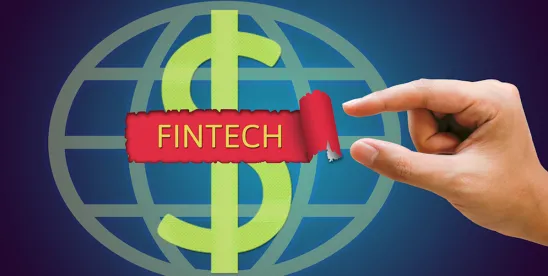CRS Analyzes Bank Charters as Interest from FinTech Firms Increases
In a new report, the Congressional Research Service ("CRS") reviewed the federal and state bank charter process and analyzed risks associated with potential charters for FinTech firms and certain issuers of cryptocurrency.
The CRS reported that banks continued to decline in number because of closures and consolidations ("from over 18,000 institutions in the 1980s to under 5,000 today"), as a result of "relaxing inter-state banking restrictions and other regulations to facilitate national bank branching, technological advances that support economies of scale of larger institutions, financial crises that result in bank closures, and mergers and acquisitions." The CRS called this a perennial concern for Congress.
The CRS said that FinTech firms were seeking national trust charters from the OCC, and special-purpose state charters in Wyoming and New York State. The CRS highlighted that the increased interest of FinTech firms in becoming chartered raised important questions for Congress: "Which companies should be considered and regulated as banks?"
In addition, the CRS highlighted cryptocurrency-related policy issues, including:
-
the reporting and collecting of taxes;
-
the tracking and reporting of illicit financial activity; and
-
the effectiveness of regulating stablecoin issuers as insured depository institutions.
The CRS concluded that policymakers need to determine the "extent to which banking institutions are permitted to participate in cryptocurrency and other FinTech activities and to what extent special purpose banks will be allowed to participate in a greater range of crypto activities than other banks."
Commentary by Sebastian Souchet
The CRS report raises a number of important policy questions in addition to the question of which entities should be considered and regulated as banks.
Such questions include:
-
What, if any, anti-competitive effects does consolidation of the banking system have?
-
What are the implications of the consolidation of the banking system with respect to systemic financial risk?
-
What is the threshold for considering an entity a bank, and what, if any, impact does the introduction of digital asset-related activities have on that threshold? What factors should be considered in determining whether an entity is a bank?
-
Should the prudential regulatory treatment of fintech and digital asset firms engaged in the traditional "cornerstones of banking - taking deposits, making loans, and facilitating payments" - be distinct from the prudential regulatory treatment of banking entities? If so, why? If not, why not?
-
How well does the existing prudential regulatory framework account for fintech and digital asset firms engaged in what are traditionally considered banking activities?
-
As fintech and digital asset firms move into the banking space, to what degree should such firms' banking activities be separated from their commercial and investment activities?
-
To the extent that stablecoin issuers become regulated as banks, (i) will regulatory tools such as deposit insurance provide the same degree of efficacy for such entities (if not, why not?), and (ii) what disclosure, reporting, and reserve requirements will be necessary to assist in preventing runs on such issuers?
These are only some of the questions that policymakers and regulators will need to thoroughly consider as fintech and digital asset firms increasingly engage in banking activities.
Sebastian Souchet is a law clerk in the Financial Services Group. Cadwalader's Steven Lofchie contributed to this comment.
OFAC Extends General Licenses Related to Ukraine Sanctions
OFAC extended two General Licenses concerning a Russian entity targeted under Ukraine-related sanctions:
-
General License No. 13Q authorizes certain transactions to divest or transfer holdings in GAZ Group and entities owned 50 percent or more by GAZ Group; and
-
General License No. 15K authorizes certain transactions involving GAZ Group and entities owned 50 percent or more by GAZ Group, including transactions related to the purchase of vehicles and vehicle parts, and activities necessary to maintain or wind down operations or existing contracts.
The extensions will remain in effect until 12:01 a.m., Eastern Daylight Time, on April 27, 2022. OFAC also issued updated FAQs in connection with General Licenses Nos. 13Q and 15K.
CFTC Chair Behnam Fills Leadership Positions
CFTC Chair Rostin Behnam appointed several division directors and other members of his leadership team. The senior appointments include:
-
Amanda Olear, Market Participants Division Director;
-
Rob Schwartz, General Counsel;
-
Clark Hutchinson, Clearing and Risk Division Director;
-
Tamara Roust, Data Division Director and Chief Data Officer; and
-
Suyash G. Paliwal, International Affairs Officer Director.
Further staff appointments and policy announcements are expected soon.



 />i
/>i